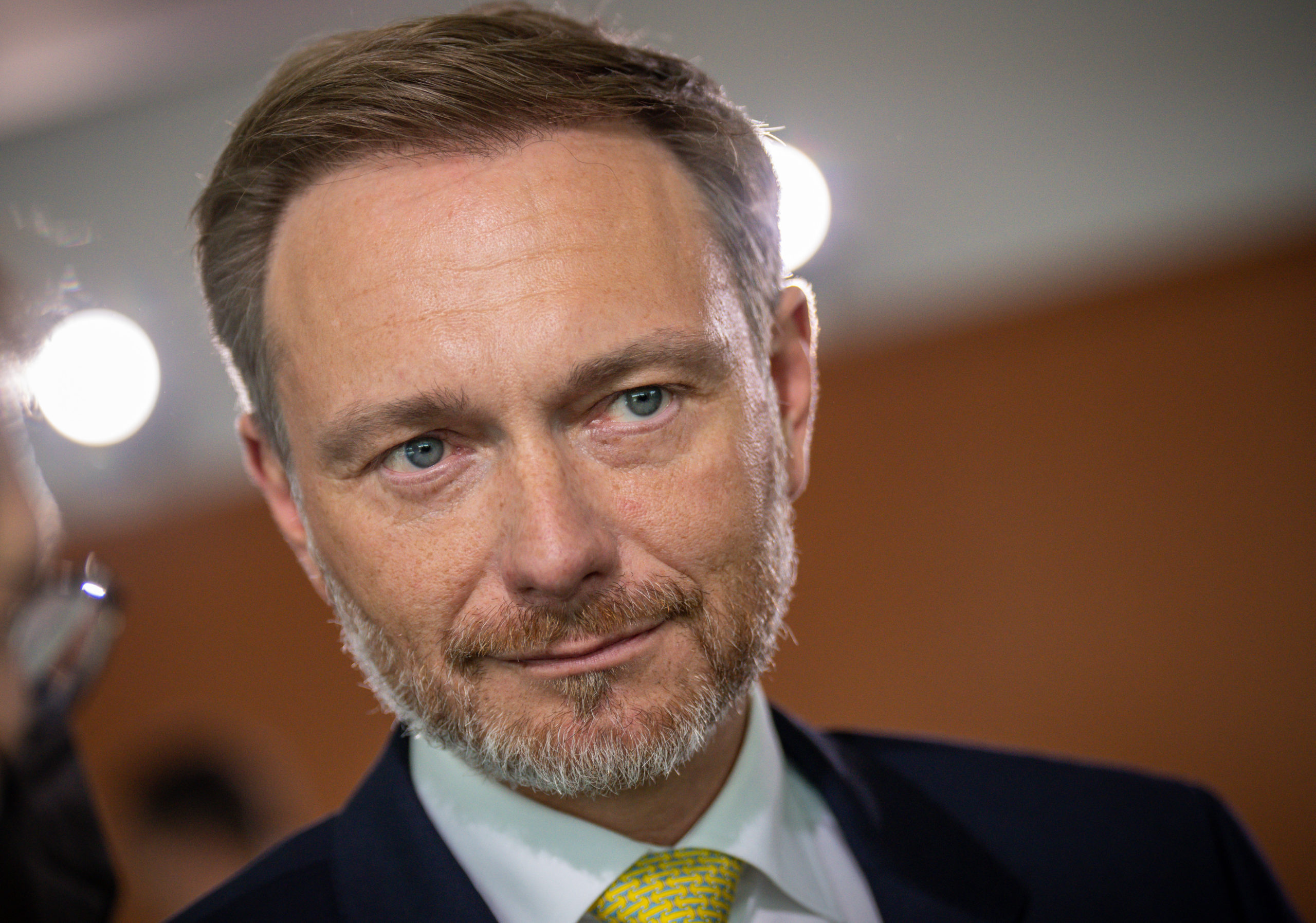German government clashes over Finance Minister's tax relief plans

Finance Minister Christian Lindner has been slammed over his proposals to cut taxes in Germany, with his coalition partners saying they benefit the wealthy.
Lindner, of the pro-business Free Democrats (FDP), said he wants to offset the effects of high inflation and provide taxpayers with relief totalling around €23 billion over the next three years.
The plan is to adjust wage and income tax in three stages by 2026, Lindner said during a presentation in Berlin on Wednesday. "It is simply a matter of fairness to adjust the tax system to inflation. The state must not be the winner of inflation."
Lindner wants to gradually increase the tax-free allowance, up to which no tax is paid by earners, to €12,336 by 2026, including a backdated increase of €180 to €11,784 this year.
The next step would come into force from January 2025 when the basic tax-free allowance would rise by a further €300 to €12,084.
READ ALSO: 8 unlikely tax breaks in Germany that international residents need to know
In his plans, Lindner argued that this would provide a saving to taxpayers of €2 million in total - and would be a signal of support to working people after unemployment benefits - or Bürgergeld - were increased due to inflation.
The FDP politician also said he wanted to combat cold progression - a phenomenon where pay increases are eaten up by inflation but taxed at a higher amount - by raising the threshold for paying the top rate of tax to €69,798 per year in 2026.

German Finance Minister Christian Lindner (FDP) at an event in Berlin on June 15th. Photo: picture alliance/dpa | Michael Kappeler
However, it comes as the German government is having to make tough budget choices and savings. And there is currently still a financing gap of around €25 billion in the German government's budget plans for the coming year.
Despite the high costs of his tax relief plan, the FDP leader does not see the current budget discussions being jeopardised: "If the coalition strengthens economic growth with bold impulses", sources close to the minister said.
The FDP's coalition partners - the Greens and Social Democrats (SPD) - have hit back, arguing the plans will primarily help those who are better off at a time when budgets are tight.
"You can't demand drastic savings from other departments...and then demand tens of billions yourself without need," Green Party finance expert Katharina Beck told Reuters.
"In view of necessary investments in defence, it is dubious to bring tax cuts in the double-digit billion range into play," Beck said, adding that the rich would benefit most from the reduced tax burden.
Michael Schrodi, financial policy spokesman for the SPD parliamentary group, expressed a similar view, saying that social security should take priority -- rather than providing tax relief for top earners.
In the last months, more cracks have been showing in the coalition government, which is led by the SPD, as junior partner - the Free Democrats - has been pushing for changes to spending and cuts to social security.
READ ALSO: Why a push for tougher benefit sanctions in Germany is sparking a dispute
Comments
See Also
Lindner, of the pro-business Free Democrats (FDP), said he wants to offset the effects of high inflation and provide taxpayers with relief totalling around €23 billion over the next three years.
The plan is to adjust wage and income tax in three stages by 2026, Lindner said during a presentation in Berlin on Wednesday. "It is simply a matter of fairness to adjust the tax system to inflation. The state must not be the winner of inflation."
Lindner wants to gradually increase the tax-free allowance, up to which no tax is paid by earners, to €12,336 by 2026, including a backdated increase of €180 to €11,784 this year.
The next step would come into force from January 2025 when the basic tax-free allowance would rise by a further €300 to €12,084.
READ ALSO: 8 unlikely tax breaks in Germany that international residents need to know
In his plans, Lindner argued that this would provide a saving to taxpayers of €2 million in total - and would be a signal of support to working people after unemployment benefits - or Bürgergeld - were increased due to inflation.
The FDP politician also said he wanted to combat cold progression - a phenomenon where pay increases are eaten up by inflation but taxed at a higher amount - by raising the threshold for paying the top rate of tax to €69,798 per year in 2026.

However, it comes as the German government is having to make tough budget choices and savings. And there is currently still a financing gap of around €25 billion in the German government's budget plans for the coming year.
Despite the high costs of his tax relief plan, the FDP leader does not see the current budget discussions being jeopardised: "If the coalition strengthens economic growth with bold impulses", sources close to the minister said.
The FDP's coalition partners - the Greens and Social Democrats (SPD) - have hit back, arguing the plans will primarily help those who are better off at a time when budgets are tight.
"You can't demand drastic savings from other departments...and then demand tens of billions yourself without need," Green Party finance expert Katharina Beck told Reuters.
"In view of necessary investments in defence, it is dubious to bring tax cuts in the double-digit billion range into play," Beck said, adding that the rich would benefit most from the reduced tax burden.
Michael Schrodi, financial policy spokesman for the SPD parliamentary group, expressed a similar view, saying that social security should take priority -- rather than providing tax relief for top earners.
In the last months, more cracks have been showing in the coalition government, which is led by the SPD, as junior partner - the Free Democrats - has been pushing for changes to spending and cuts to social security.
READ ALSO: Why a push for tougher benefit sanctions in Germany is sparking a dispute
Join the conversation in our comments section below. Share your own views and experience and if you have a question or suggestion for our journalists then email us at [email protected].
Please keep comments civil, constructive and on topic – and make sure to read our terms of use before getting involved.
Please log in here to leave a comment.